We're essentially one quarter of the way through the 2017 NFL season. Twenty-eight of the league's 32 teams have played four games, with the Buccaneers and Dolphins taking an unexpected Week 1 bye as a result of Hurricane Irma, and the Chiefs and Washington finishing Week 4 on Monday Night Football. Four games doesn't seem like much, but when you consider that the typical team will line up for about 500 plays from scrimmage over a typical four-week period, we're getting plenty of data points on how they're going to play this season.
In some cases, those surprises will stick around for the remainder of the season. Others won't. By this time last season, Matt Ryan already led the league in passing yardage, which was the first hint of a season that would eventually earn him a totally unexpected MVP award. It also was a league in which Isaiah Crowell was second in rushing yardage, Marvin Jones was second in receiving yardage, and the Vikings were 4-0. Those changes weren't quite as sticky.
Some things about the 2017 season haven't been all that surprising. The Packers and Steelers have been good. The Browns and 49ers have not. After the first four weeks of the season, though, there are quite a few things most of us didn't see coming. Many of them were reinforced during a wacky Sunday that saw six underdogs win before the late-afternoon games got into gear.
Let's look at 10 of the most surprising on-field elements of this NFL season so far and see if we can make some sense of whether they're likely to keep up the rest of the way. Among the 10 teams represented are the four members of the AFC East, the league's most topsy-turvy division after four weeks:
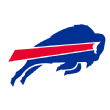
Buffalo Bills
The surprise: A great defense!
Expectations were low for the Bills after they traded down in the first round of this year's draft and then dealt away Sammy Watkins and Ronald Darby in August moves designed to rack up 2018 draft picks. Buffalo spent camp publicly flirting with the idea of benching starting quarterback Tyrod Taylor for rookie fifth-rounder Nathan Peterman, which lent credence to the idea that it might be tanking in 2017.
After four games, the only thing the Bills have been tanking is opposing offenses. Buffalo has allowed a league-low 13.5 points per game through four weeks, and while it helped that they played a dysfunctional Jets offense in the opener, the Bills re-established their bona fides on Sunday with a 23-17 win at the previously undefeated Falcons. The Buffalo defense created two huge plays for the win, with breakout rookie Tre'Davious White taking a Matt Ryan fumble to the house for a touchdown before Micah Hyde's second interception of the day set up a crucial field goal with 3:10 left.
The Falcons did lose Julio Jones and Mohamed Sanu to injuries during the game, but this wasn't Buffalo's first impressive defensive performance of 2017. The Bills have been down their highest-paid defender for most of this stretch, losing Marcell Dareus in Week 2 to an ankle injury before the former Alabama star returned Sunday. Outside of White and defensive end Jerry Hughes, who has been playing like a Pro Bowler this season, the Bills haven't had individual defenders playing out of their minds so far.
Instead, Sean McDermott's defense has turned things around by turning into a bend-but-don't-break unit. The Bills don't have many mental lapses, they tackle well and they don't give up many big plays. Buffalo is allowing receivers to average just 3.8 yards after their catches, the third-lowest rate in the league. It has taken away deep passes, as opposing quarterbacks have posted the NFL's second-lowest passer rating (37.2) and QBR (14.9) on throws traveling 16 or more yards in the air. Kyle Williams & Co. have also held up in the red zone, allowing teams to score touchdowns on just 36.4 percent of their trips inside the 20. That's the third-best rate in the league.
I'm skeptical of the bend-but-don't-break defense as a concept, but there are reasons to think the Bills can be a very good defense the rest of the way. They're not playing mediocre football for the first 80 yards of the field before suddenly turning things on in the red zone, which would be a recipe for disaster. They've been able to survive injuries, having won without Dareus last week and Shaq Lawson this week.
The Bills also have a defense-minded coach in McDermott who simply has a long track record of success. While Sean McVay's work in rebuilding the Rams' offense has rightfully been lauded, it would be fair to similarly credit McDermott for immediately turning a defense which ranked 27th in DVOA last season into one that will likely top the DVOA charts after Week 4, even after the Bills lost a pair of Pro Bowlers -- Stephon Gilmore and Zach Brown -- this offseason. (It's also an indictment of Rex Ryan when you consider he inherited a defense that ranked second in DVOA in 2014 and subsequently drove it to 24th and 27th over his two years at the helm, only for the defense to rebound immediately after he left.) The schedule gets tougher later in the season, but the Bills' defense is back.
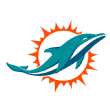
Miami Dolphins
The surprise: The offense has been a disaster.
It's fair to say expectations were high for the Dolphins' offense before the season. Glowing reports out of camp augured a world in which every one of their skill-position players could all somehow have breakout seasons at once. The enthusiasm was tempered by the torn ACL suffered by quarterback Ryan Tannehill, but with the Dolphins coaxing Jay Cutler out of a brief retirement to reunite with Cutler Whisperer Adam Gase, Miami looked to be in shape to march up and down the field on opposing defenses. After the Buccaneers game was postponed, an early defensive slate against the Chargers, Jets and Saints didn't seem likely to offer much resistance.
Instead, the Dolphins have been dismal. It took a meaningless touchdown on the final snap of the game against the Jets for the Dolphins to avoid a shutout against what was supposed to be the league's worst team. Even worse, the Dolphins went to London on Sunday and were shut out by the Saints, who ranked 31st in DVOA heading into the game and hadn't held an opposing offense to a single-digit score in 48 games.
Miami is doing nothing right on offense. It has arguably been the sloppiest team in the league so far. Consider one three-play stretch against the Jets in which Miami took a timeout to avoid a delay of game, committed a false start with the clock nearly hitting :00, and then ran a draw on third-and-16 as the clock wound down a third time. In the same game, rookie defensive lineman Davon Godchaux committed encroachment and neutral zone infraction penalties on consecutive plays before adding two more penalties to the mix on Sunday. He has committed five penalties in three games.
The Dolphins' offensive line has been a mess, and while they've had to rotate Anthony Steen and Jesse Davis at left guard in the absence of Ted Larsen, they weren't exactly in great shape on the interior heading into the year with Larsen, Jermon Bushrod and Mike Pouncey, who has been taking days off practice each week to rest his surgically repaired hip. Jay Ajayi and his fellow backs are averaging just 1.18 yards before contact on run plays, the lowest rate in the league by a significant margin, as the 31st-placed Colts average 1.46 yards before contact.
Distressingly, though, Cutler looks like he doesn't belong on the field. The concerns about his body language and facial expressions were always a media projection, but after a competent preseason, Cutler has been wildly erratic from play to play and series to series. He's one-hopping passes to open receivers without any pressure. The offensive line hasn't been able to hold up long enough for Cutler to get the ball downfield, as the former Bears starter is being pressured on 52.4 percent of his deep throws, the second-highest rate in the league. And while his receivers have dropped just 1.9 percent of Cutler's throws, they're also averaging a league-low 3.4 yards after Cutler's passes, in part because those throws haven't been very accurate.
The Dolphins will get better out of sheer regression toward the mean because no offense is this bad for 16 games. They've converted just 24 percent of their third downs and turned 20 percent of their red zone trips into touchdowns, both of which are the lowest rates in the league.
Getting the offense to coalesce the way Miami expected before the year, though, might require change. The offense seemed to click in 2016 once Gase eliminated his running back rotation and handed the starting job to Ajayi, who broke out with a 204-yard game against the Steelers. Before that game in Week 6, the Dolphins had averaged 17.6 points per game; afterward, they racked up 25 points per contest. Outside of turning the quarterback job over to Matt Moore, there's no obvious switch to be made elsewhere on the offense so far.
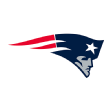
New England Patriots
The surprise: The worst defense in football!
I wrote about the Patriots and their horrific defense last week, and things didn't get much better in Week 4. While the 31st-ranked Saints pulled farther away from the Patriots by shutting out Miami, the Pats seemed to cure Cam Newton's wobbly start to the season. The Panthers racked up 444 yards and 28 first downs on the Patriots' defense en route to a 33-30 victory, dropping New England to 2-2; the Pats required a miraculous comeback against the Texans to avoid starting 0-3 in Foxborough.
What's distressing about the problems is that they aren't really an issue of talent. The concern about the defense heading into the season was a lack of pass-rushers, but Trey Flowers and Deatrich Wise have been useful off the edge, and Dont'a Hightower came back against Carolina and chipped in with a sack. The pass rush hasn't been great -- the Pats are 27th in sack rate and 29th in pressure rate after four weeks -- but it doesn't explain why the Patriots have been so horrific on defense alone.
Instead, it must be really worrisome for Patriots fans to see all kinds of miscommunication and mental lapses creating easy plays for the offense. Patriots beat writer Doug Kyed referenced how the Patriots repeatedly struggled to pass off players in motion against the Panthers and got caught looking into the backfield, creating big plays for Carolina, like the touchdown pass to Fozzy Whittaker.
After the game, the Pats hardly minced words. Devin McCourty suggested both he and Stephon Gilmore looked like "a couple of idiots" on the Whittaker pass and suggested the secondary was "letting the team down." Gilmore, meanwhile, blamed his poor play on his own struggles with communication. The former Bills star, signed to a five-year deal in free agency, was benched to start the second half but forced back into the lineup almost immediately when replacement Eric Rowe got hurt. Gilmore would later be crucially called for an illegal hands to the face penalty that extended a Panthers drive and set up Carolina for a touchdown.
This stuff shouldn't be happening with a Bill Belichick-coached team, and I suspect nobody knows that more than Belichick himself. In the long term, the Patriots should be fine; even if the Gilmore contract is a colossal mistake (and that's way too early to say), the Pats should be able to ride with Rowe, Malcolm Butler and Jonathan Jones while limiting Gilmore's snaps. In the short term, though, it's unclear whether the Patriots will be able to fix things overnight. What certainly won't help is a short week, but that's what New England is up against in traveling to Tampa Bay for a Thursday night game. Two weeks later, the Pats get a Super Bowl rematch with the Falcons in Foxborough.
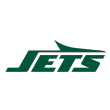
New York Jets
The surprise: They're not the worst team in the league!
Break up the Jets! After Gang Green was a popular pick before the season to finish with the league's worst record, Todd Bowles' team is shockingly even with the Patriots in the AFC East at 2-2. Even more exciting for Jets fans, it's the rival Giants who are 0-4 and challenging for the first pick in the draft. Can the Jets be competitive and keep this up?
They are better than most people expected heading into the season, but color me skeptical they'll flirt with .500. Their two wins simply haven't been very impressive, while their losses have been far more comprehensive. Beating the Dolphins looks good on paper, but Miami also beat itself with mistakes and sloppy play; any team in the league would have comfortably dispatched Gase's team in Week 3.
As for their win against the Jags on Sunday, the Jets required a fluky 75-yard touchdown from Bilal Powell on which the Jaguars' defense mistakenly believed it had touched down the runner, only for Powell to get up and run for a score. The Jets did run the ball well against the league's 32nd-ranked run defense by DVOA heading into the week, but the final numbers overstate their real effectiveness by virtue of that play.
The Jets also tried their best to throw away the game. Powell slipped on a pass attempt to convert a late third-and-6 that would have been short of the sticks anyway, leading A.J. Bouye to an interception which gave the Jags great field position. The Jaguars scored a touchdown on the ensuing drive, only for Arrelious Benn to be whistled for a totally unnecessary holding penalty, forcing the Jags back into a game-tying field goal try.
Josh McCown then fumbled on the final snap of regulation, fortunately falling on what would have been a critical mistake that would have given the Jags a shot at a game-winning field goal. Then, late in overtime, the Jets bizarrely decided to spike the ball on third down with 34 seconds left to set up their game-winning field goal try when they just as easily could have kneeled to keep the clock running. Had Chandler Catanzaro missed for the second time, the Jets would have given the Jaguars a free 30 seconds to try to win the game themselves. (If the Jets weren't confident they could have gotten their kicking unit on the field and run a field goal try with 30 seconds, they have bigger fish to fry.)
The Jets might very well have a winning record this time next week -- they're about to travel to Cleveland for a game against a hapless 0-4 Browns team. After that, though, the schedule stiffens. The Jets will face the Patriots, Dolphins, Falcons, Bills and Buccaneers before their Week 11 bye, and the Panthers, Chiefs and Broncos immediately afterward. For a team whose margin of error in beating the Jaguars was razor-thin, it's difficult to see the Jets winning many of those games.

New York Giants
The surprise: It's a bad offense!
If the Giants' season isn't over, New York is in for a pretty miraculous comeback story. Just one team since the merger has started 0-4 and made the postseason, and after the Giants lost on a last-second field goal for the second consecutive week, ESPN's Football Power Index suggests they have just a 2.3 percent chance of making it to January. Get the boats ready for January.
The entire team is playing worse -- the New York defense has regressed toward the mean in terms of health and red zone performance, with young contributors such as Eli Apple and Landon Collins slipping so far -- but the offense has come in for particular scrutiny. General manager Jerry Reese loaded up his cart with weapons this offseason, signing Brandon Marshall and using a first-round pick on athletic tight end Evan Engram, giving Eli Manning a bevy of options alongside Odell Beckham Jr. and Sterling Shepard.
Through four games, the extra weapons haven't helped. Engram has been impactful as a receiver, but Marshall has been a replacement-level player, dropping two key passes while averaging just under 35 receiving yards per game. Beckham has been brilliant for moments but has struggled with an ankle injury. The receiving corps has dropped 4.8 percent of Manning's passes, well above the league average of 3.4 percent and narrowly worse than the 4.5 percent rate of 2016.
For whatever additions were made at receiver, though, Reese did close to nothing to address a putrid offensive line and a useless running game over the offseason. The biggest addition the Giants made up front was Chargers castoff D.J. Fluker, while Reese added another midround pick at running back, Wayne Gallman, who made his debut and ran for a touchdown Sunday.
As has been the case in years past, the line has rendered the Giants' offense inert for stretches of time, most notably against the Lions in Week 2. A desperate Ben McAdoo has repeatedly made changes to the line, in part thanks to injuries; the Giants started their third offensive line combination in four weeks Sunday. The Giants' line might not be good with continuity, but they're certainly not going to ever get much better without it.
There's little reason to think the Giants are going to get better up front before this offseason, and they face a schedule that is chock-full of dominant pass-rushers. Over the next six games, the Giants face Joey Bosa, Melvin Ingram, Von Miller, Cliff Avril, Michael Bennett, Aaron Donald, Robert Quinn and Justin Houston. Khalil Mack and Chandler Jones visit later in the year. The Giants knew this in advance and basically ignored their offensive line this offseason anyway. It was a problem anyone could have seen coming in August.
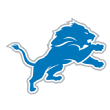
Detroit Lions
The surprise: They're a takeaway machine!
The Lions were a bad team with incredibly great timing last season. Despite the fact that they finished a lowly 27th in DVOA, Detroit rode a league-record eight fourth-quarter comebacks from Matthew Stafford to an 8-5 record in games decided by seven points or fewer for a 10-6 record and a wild-card berth.
This season, the Lions are a good team that might actually be unlucky. Detroit was fourth in DVOA heading into the week, having come within a foot of starting its season 3-0. It made it to 3-1 by beating the Vikings 14-7 on the road in Minnesota this weekend. FPI now gives the Lions a 55.8 percent chance of making it into the postseason, up from 20.8 percent before the season.
The biggest reason the Lions have been able to turn things around on defense? Takeaways. Detroit forced just 14 turnovers in 16 games last season, which was 28th in the league. In 2017, though, the Lions already have forced 11 takeaways, including three from Case Keenum and the Minnesota offense on Sunday. Teryl Austin's unit is tied with the Ravens for the league lead in takeaways. Who saw that coming?
While I don't doubt that the Lions' defense is improved versus a year ago, when it ranked last in DVOA and against the pass, turnover rates like Detroit's are impossible to maintain. Too many things have to go right. Think about the game against the Falcons, when the Lions picked off three passes from reigning league MVP Matt Ryan. Two of those were would-be completions off Atlanta fingertips into the hands of Lions defenders.
On Sunday, the Vikings fumbled three times and Detroit managed to recover all three. One of the fumbles, as an example, came on a noncontact play when rookie running back Dalvin Cook appeared to injure his knee and fumbled the ball without being touched. The Lions recovered. They've now recovered four of the six fumbles opposing offenses have placed on the ground this season, and while forcing fumbles is a skill, teams have no ability to recover a particularly high percentage of those fumbles. We would expect Detroit to recover 50 percent of its forced fumbles going forward.
Minnesota, coincidentally, serves as an example of how you can't really build a defense around an incredible takeaway rate. Its 2016 defense started on fire, mostly via takeaways. The Vikings racked up 11 takeaways in their first four games and ended up with 16 in their first six contests. They recorded a total of just six takeaways over the next seven weeks before generating five against Matt Barkley and the Bears in Week 17.
Minnesota started 5-0 but went just 2-7 during its turnover-poor stretch, which eventually cost the Vikings what had once looked to be a guaranteed playoff spot. The Lions should have a good enough offense to avoid bottoming out if the defense does head toward the mean in turnover rate, but their defense is running a high-wire act by relying so heavily on takeaways. It's a high-risk, high-reward model, and if the takeaways disappear, the Lions could decline quickly.
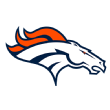
Denver Broncos
The surprise: A stifling run defense!
The 2016 Broncos had a great defense, but it wasn't for what they did against the run. While Denver had the league's best pass defense DVOA by a country mile, the Broncos were just 21st against the run. They didn't allow many huge plays, but Wade Phillips' unit stopped just 11 percent of runs for no gain or a loss last season, the worst rate in football.
Denver subsequently overhauled its defensive line this offseason, replacing nose tackle Sylvester Williams with veteran Domata Peko while allowing the injured Vance Walker to leave. Jared Crick suffered a back injury before Week 1 that cost him his 2017 season, opening up a role in the lineup for second-year lineman Adam Gotsis, who played just 222 defensive snaps after being drafted in the second round last year.
The results have been nothing short of remarkable. Gotsis has been a useful contributor from the first moments of this season, while incumbent Derek Wolfe has played arguably the best football of his career. Broncos linebackers are shooting into gaps and flooding the line of scrimmage; opposing rushers are averaging just 1.05 yards before first contact against the Broncos, comfortably the best rate in the league. Second-place Washington is at 1.41 yards before first contact, with the league average is 2.34.
The raw numbers are impressive -- Denver has allowed just 203 yards on 84 carries, an average of 2.4 yards per attempt -- but it's even more staggering when you consider the opposition. The Broncos have shut down Melvin Gordon, Ezekiel Elliott, LeSean McCoy and most recently Marshawn Lynch in consecutive weeks. Lynch finished with just 12 yards on nine carries Sunday. The Broncos will head to a bye week before facing the Giants in Week 6; it's unlikely New York will put a dent in Denver's rushing numbers.
Vance Joseph's run defense might not be quite this good all season, but there's no reason to think the Broncos won't be very good at shutting down opposing rushing attacks the rest of the way.
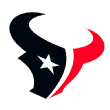
Houston Texans
The surprise: A franchise quarterback!
Rookies just don't do what Deshaun Watson did against the Titans on Sunday. Fantasy points are a crude-but-unbiased measure of cumulative production, but consider that Watson's day -- 283 yards and four passing touchdowns (with an interception) to go along with 24 yards and a rushing score -- was the eighth-most productive fantasy performance by a rookie quarterback since 1970, and it came in his third professional start.
While Bill O'Brien's decision to leave Watson on the bench for Tom Savage in the season opener seems more and more bizarre with each passing week, he has begun to shift the offense to accommodate Watson's mobility. According to ESPN Stats & Information, the Texans ran just two zone-read plays all of last season. They've run 23 such plays already in 3½ weeks of Watson. Those numbers don't include pure option looks, like the one out of the pistol that resulted in a Lamar Miller touchdown against Tennessee on Sunday.
Watson's ability to climb and escape the pocket with solid footwork has come in handy, given that teams have pressured the Texans' starter on 39.5 percent of his dropbacks. He's taking 3.01 seconds before throwing the ball, which is an outlier among NFL quarterbacks and speaks to Watson's mobility and desire to extend plays before finding an open receiver. Despite Watson's limited reps with his starting receivers, he has shown an ability to find the right receiver when plays break down.
What also has been hiding in Watson's stat line is what he has accomplished with defensive pass interference calls, particularly on throws to DeAndre Hopkins. Hopkins has now drawn seven pass interference penalties this season, with five from Watson and two from Savage. No other receiver has topped three. In addition to Hopkins picking up his seventh on Sunday, the returning Will Fuller V racked up a 45-yard PI of his own.
Watson is still a rookie, and he's going to be inconsistent. He wasn't effective for the vast majority of the win over the Bengals, although the former Clemson star won the game for Houston with a 49-yard scramble for a touchdown. Watson also wasn't very good in his debut against the Jags, although he was bailed out by a penalty and was certainly better than Savage. He threw an absolutely awful interception in the red zone against the Titans on Sunday, the lone blemish on an otherwise wonderful day.
Currently, with Watson's running numbers supplementing his value, the rookie leads the league with a 79.2 opponent-adjusted QBR. Is he actually better than Tom Brady? No. At the very least, though, Watson is good enough to give the Texans a fighting chance at quarterback. He has developed a quick rapport with Hopkins and even breathed some life into the moribund Miller this week. Watson won't be as good as he looked this week because no quarterback is this good on a week-to-week basis, but Texans fans finally have a passer worth getting excited about.
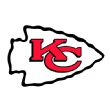
Kansas City Chiefs
The surprise: Kareem Hunt and the option!
I'll be talking more about Hunt and the Chiefs over the next couple of weeks, but it's hardly a secret that the they look like a different offense this season. Much of that is fueled by the way Alex Smith played in a nationally televised win over the Patriots in the season opener, but truthfully, Smith has been his old self since then. Smith averaged 7.3 air yards per pass during the opener, but in his two ensuing games, he has averaged a league-low 4.8 air yards per throw while going deep for a pass of 16 or more yards just five times on 49 attempts.
What has been fascinating, then, has been the Chiefs' move toward spread concepts and option components in their running game after flirting with it for years. As other coaches complain about how different the college game is and how it leaves players underprepared for their professional offenses, it's fun to see Andy Reid -- a dyed-in-the-wool West Coast offense acolyte who is part of the Bill Walsh coaching tree -- shift his offense into something that looks like a mix of what we would typically see on Saturday and Sunday.
Brad Childress, who spent his first three years on staff as the team's "spread game analyst," also likely deserves credit for some of the plays and concepts Reid has lifted from the college ranks. Former NFL offensive lineman Geoff Schwartz wrote about one of those plays last week, a power read shovel scheme with the Chiefs using Tyreek Hill in motion to confuse and freeze linebackers before Smith reads a defensive end and chooses to throw a shovel pass to Travis Kelce.
Hunt probably won't keep up this pace if only because he has created so many big plays over his first few weeks as a pro. I noted before the Chargers game that Hunt already had tied 2016's leading running backs with three plays of 50 yards or more; Hunt promptly ran for a fourth to seal the win over Los Angeles last Sunday. Teams will see more of Reid's handiwork on film and begin to react accordingly, and indeed, others will copy him; the long touchdown pass Todd Gurley caught for the Rams Sunday bore a notable resemblance to the long pass Hunt caught against the Patriots in the opener. Even if teams aren't thrown for a loop, though, it's hardly a guarantee they'll catch up to the Chiefs anytime soon.

Los Angeles Rams
The surprise: 3-1 with Jared Goff and Todd Gurley looking like superstars!
The biggest surprise of the first quarter of the season, though, has to be the rehab of the Rams and the sudden improvement of both Goff and Gurley, who looked like different human beings last season under the Jeff Fisher administration. Goff, who was frantic at any sign of pressure last season, looks calm and collected when there are free rushers coming at him. And Gurley, who seemed to lose his confidence and stopped trusting his instincts in 2016, suddenly looks like he believes he can beat anybody in a one-on-one situation.
Of the two, it seems more plausible Goff will keep this up than Gurley, who has assumed a truly onerous workload as the focal point of the Los Angeles offense. The former Georgia star has 106 touches through four games, which would be tied with Lamar Miller's run in Houston last season for the 11th-largest workload over the first four games of the season since 2002. Gurley has racked up 596 yards from scrimmage over that time frame, also good for 11th since 2002. With a surgically repaired ACL in his past, the Rams probably would be smart to slow Gurley's workload some, which would be easier if Lance Dunbar were healthy.
There's nothing inherently unsustainable about the Rams' offensive success under new coach Sean McVay. It is the sixth-best team in the league at converting third downs and tied for 13th -- alongside the Falcons -- in converting its red zone trips into touchdowns. The offense might be dependent upon Gurley, but it was solid on Sunday without every-down service from Sammy Watkins, who cleared the concussion protocol but had only one catch for 18 yards.
The question skeptical neutrals and nervous Rams fans are asking is obvious: Why should this year's 3-1 start be any different from last year's 3-1 start, which the Rams followed by going 1-11 the rest of the way?
The numbers suggest this is a different situation. The 2016 Rams were outscored by 13 points in their 3-1 start to the season, thanks to a 28-0 blowout loss to the Niners in the opener. They proceeded to win their next three games by four, five and six points, with the most notable victory coming over the Seahawks.
This Rams team is 3-1 with a point differential of plus-37 through four games. They blew out the Colts by those 37 points in the opener before losing to Washington in a seven-point game that required a late Kirk Cousins touchdown pass to break a tie. Los Angeles then played that classic Thursday night game against the Niners before upsetting the Cowboys in Dallas on Sunday.
Two of those wins are close, but the Rams came up with a victory against a 13-win Cowboys team from a year ago on the road. They beat the Seahawks last season by six points, but that required a herculean defensive effort to hold Seattle in a 9-3 snore. The 2016 Cardinals and Bucs were more competitive than the Colts and 49ers are likely to be, but blowing out the Colts is a great sign for Los Angeles's short-term future.
McVay's team is in a fundamentally different place than it was a year ago, and FPI recognizes that. The Rams were projected to claim an average of 6.0 wins heading into the season, but that's no longer the case. Now, with the NFC West struggling and the Rams shining, FPI projects them to win 7.4 games. Their playoff odds have risen from 6.2 percent to 21.7 percent. The task is far from done in rebuilding Los Angeles, but this has been a great start.
